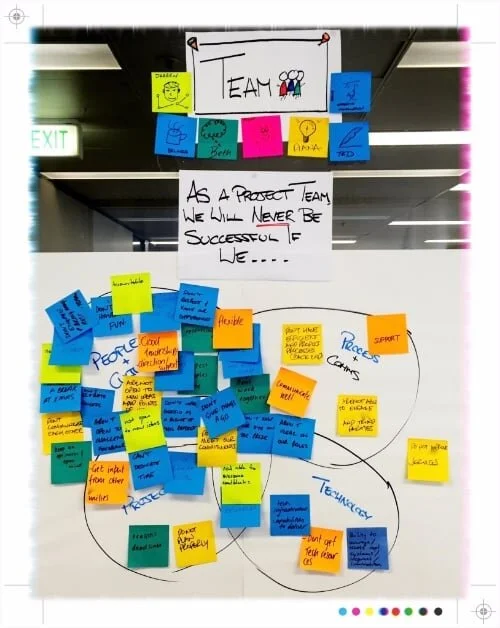Why creating a Team Charter is so important for high-performing teams
Every workshop we do to kick off a project has some aspect of team building in it.
The main reasons of course are to allow people to get to know each other, to feel comfortable working with each other, and to break the mould of the day-to-day. Sarah has previously written about the ROI of icebreakers.
One team building exercise we have seen work well is about creating a team charter for high-performing teams:
Think about the characteristics of unsuccessful teams
Reverse them and note down the characteristics of successful teams
Find the common themes
Discuss each theme and agree on importance
Select your top 7 characteristics of a successful team
Sketch / Type / Take photo and hang visibly in the team space
This process is really effective in getting input from every individual. I was reminded of the importance of getting everyone to share how they want the team to work together by this gem of a quote*:
“We co-operate in our group (...) in order to strengthen our group in its competition with other groups. Competing groups have the characteristics of competing individuals.”
Leaving the competitiveness aside - although the very reason for most projects is competition - the important lesson here is the second part of the quote: that individuals define groups, not the other way around.
According to the quote, defining how a team should be working together top down does not work. Instead, the individuals of the group have to come together and define which characteristics are important to them. They have to discuss their personal and professional reasons for these characteristics and come to an agreement of how they want to be working together as a team.
What you will get is not a number of teams that are working in the same way. You will get a number of teams that are working.
*The Lessons of History by Ariel and Will Durant. Strongly recommended for anyone interested in a short, broad sweep of history. A partial summary of the of the book can be found here.


